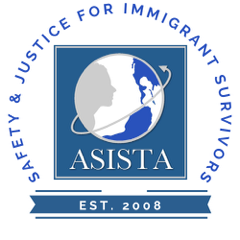ASISTA Statement on Updated USCIS Guidance
| New USCIS Guidance will create a chilling effect on survivors coming forward to access protection. |
| Yesterday, USCIS released Updated Guidance for the Referral of Cases and Issuance of Notices to Appear (NTAs) in Cases Involving Inadmissible and Deportable Aliens (Updated NTA memo) which vastly expands the circumstances in which USCIS will issue NTAs or refer cases to ICE. This guidance implements the directive from the January 2017 Executive Order that individuals whose legal claims to remain in the United States have been lawfully rejected should be removed. The updated NTA memo echoes the expanded enforcement priorities found in the executive orders; most notably, cases presenting a criminal history, fraud or misrepresentation or abuse of public benefits are high among the enforcement priorities. The updated NTA memo also states that USCIS will issue an NTA if a case has been denied and the individual is not legally present in the United States. In cases involving VAWA, U and T visa applications, the Updated NTA memo states USCIS must follow the guidelines established in the memo once the case has been denied. It had been a long standing practice that USCIS did not typically issue NTAs in connection with survivor-based filings like VAWA self-petitions, U and T visa applications. This was done in part due to the recognition of the chilling effect that this would have on victims coming forward to access these protections. Immigrant survivors of domestic violence and sexual assault often face barriers when seeking safety and protection, including threats from abusers and perpetrators that reaching out for help will result in their deportation. To address these barriers, Congress created essential protections in the Violence Against Women Act to provide survivors with protections against deportation to allow the to seek help without fear of abuser retaliation. The Updated NTA Memo flagrantly disregards and undermines the bi-partisan Congressional intent of establishing these critical safeguards for immigrant victims of domestic violence, sexual assault, human trafficking, and other crimes. In the upcoming days, ASISTA will be working on a practice advisory for those who serve VAWA, U and T visa applicants as well as co-hosting a call with our allies to discuss the implications of this memo. We are deeply disappointed by and concerned about this guidance. It will harm victims of crime, as the fear of the consequences of denial may prevent them from coming forward. Sincerely, Cecelia Friedman Levin Senior Policy Counsel ASISTA |
